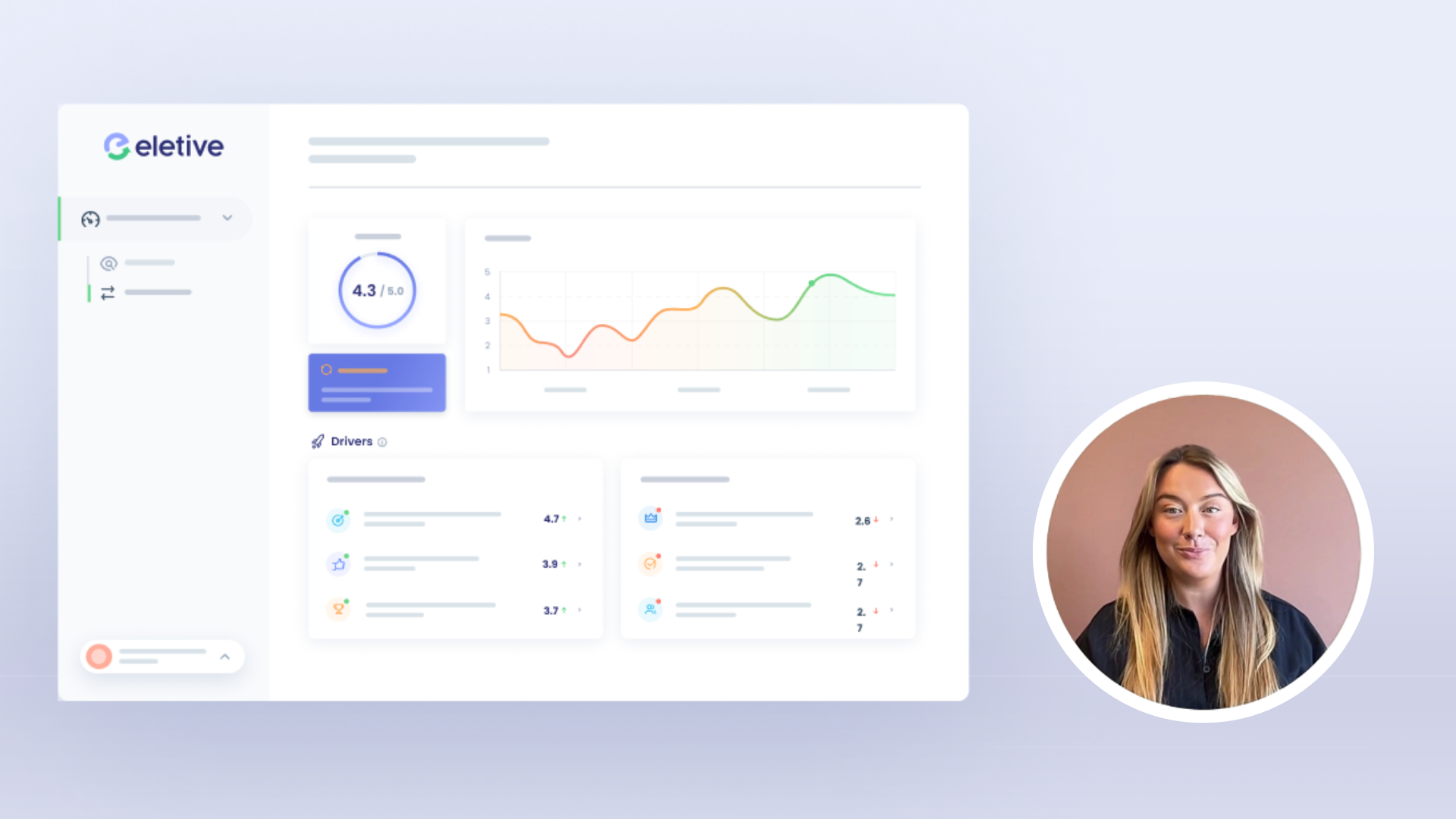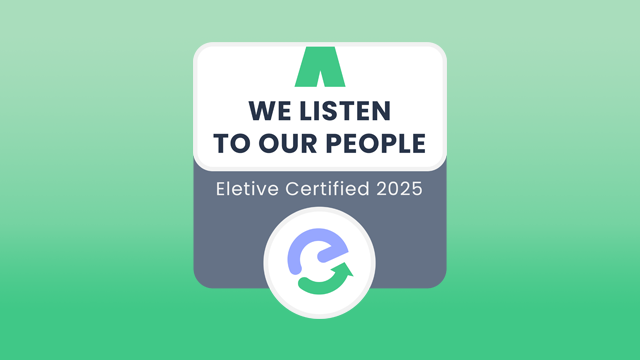Employee engagement is a critical success factor in the hospitality industry. It’s essential for companies to understand and address the challenges and opportunities for increasing engagement among their employees.
A highly engaged workforce brings increased productivity, improved customer service, and higher levels of customer satisfaction, all of which can help you drive business growth and success.
In this blog post, we’ll explore challenges and opportunities for increasing employee engagement in hospitality, and provide strategies for measuring and improving hospitality staff engagement. We will have a look at the role managers play in fostering a positive and supportive work environment, and we will highlight the importance of employee feedback.
Hospitality employee engagement: 10 common challenges
High turnover rates: The hospitality industry is known for its high turnover rates, which can be disruptive and costly for businesses. High turnover rates can lead to a lack of consistency and expertise among employees, which can decrease their engagement and satisfaction.
Lack of clear communication: Hospitality employees often have to work quickly and under pressure. They may not always have access to clear and timely communication from management. This can lead to confusion and frustration among employees, which can decrease their engagement.
Limited opportunities for career development: Many hospitality jobs are entry-level positions with limited opportunities for advancement. This can make it difficult for employees to see a path forward in their careers, decreasing their motivation and engagement.
Inadequate training and support: Hospitality employees may not always receive the training and support they need to do their jobs effectively. This can lead to feelings of inadequacy and frustration, which can decrease their engagement.
Poor working conditions: Hospitality employees may have to work long hours, often in physically demanding environments. This can lead to fatigue and burnout, which can decrease their engagement.
Lack of recognition and appreciation: Hospitality employees may not always feel valued and appreciated for their hard work. This can lead to feelings of disconnection and resentment, which can decrease their engagement.
Limited opportunities for growth and advancement: Many hospitality employees may not have access to the same opportunities for growth and advancement as their peers in other industries. This can lead to feelings of stagnation and frustration, which can decrease their engagement.
High customer demands: Hospitality employees often have to deal with demanding and difficult customers, which can be stressful and challenging. This can lead to feelings of frustration and resentment, which can decrease their engagement.
Lack of work-life balance: Hospitality employees may have to work long and irregular hours. This can make it difficult for them to maintain a healthy work-life balance. This can lead to feelings of burnout and exhaustion, which can decrease their engagement.
Unfair or unequal treatment: Hospitality employees may feel that they are not treated fairly or equally by their managers or colleagues. This can lead to feelings of resentment and injustice, which can decrease their engagement.
Why managers are key in improving employee engagement in hospitality
Employee engagement levels are often closely connected to the quality of the managers. The actions and behaviors of managers have a direct impact on the experiences and feelings of their employees.
Retail employee engagement manager support:format(png)/f/288714721386412/8cf82f2db4/group_984.png)
Good managers create a positive and supportive work environment. They provide employees with the tools and resources they need to do their jobs effectively. They communicate clearly and consistently, and they make an effort to listen to and address the concerns of their employees. They also recognize and reward hard work, and they provide opportunities for training and development. All of these actions and behaviors can help to increase employees' engagement and satisfaction.
Managers have a direct impact on the experiences and feelings of their employees. Good managers create a positive and supportive work environment that leads to increased engagement. Poor managers often result in the opposite.
Recommended reading: Empowered leaders and high-performing teams
360 feedback surveys – a powerful tool for leadership and employee development
360 feedback surveys are a powerful tool for leadership and employee development. They provide a comprehensive and unbiased view of an individual's strengths, weaknesses, and areas for improvement.
360 feedback surveys are often focused on managers or leaders, and they gather feedback from a wide range of sources, including direct reports, peers, and supervisors. Developing the leaders and managers in your organisation through mulit-rater feedback can be an efficient way to improve the employee experience and increase engagement.
Recommended reading: 350-degree feedback questions [with examples]
Hospitality eNPS – a global employee engagement benchmark
eNPS, or the Employee Net Promoter Score, is a global benchmark metric that is used to measure employee satisfaction and loyalty. The eNPS is calculated by asking employees to rate their likelihood of recommending their company to a friend or colleague on a scale of 0 to 10. The eNPS is then calculated by subtracting the percentage of employees who give a score of 0-6 (known as detractors) from the percentage of employees who give a score of 9-10 (known as promoters).
eNPS bar
One of the main benefits of using eNPS as a global benchmark is that it provides a consistent and standardized measure of employee satisfaction. This makes it possible to compare the eNPS of different hospitality companies and to track changes in the eNPS over time. This can be useful for identifying areas where a company may need to improve in order to retain its employees.
Recommended reading: How to measure and increase eNPS
Employee engagement surveys for hospitality
Employee engagement surveys can help increase employee engagement by providing valuable insights into the experiences and feelings of employees. The surveys can be used to identify areas where improvements are needed, and they can provide a platform for employees to give their honest and candid feedback.
By listening to and acting on this feedback, companies can create a more positive and supportive work environment. This can lead to increased employee satisfaction and engagement, which can improve customer service and support business growth and success.
Recommended reading: How intelligent employee surveys can improve your people strategy
KIOSK codes increase participation rates
Another challenge when it comes to employee surveys is that hospitality staff don’t always have specific digital devices for work. At Eletive, we offer a KIOSK codes as an efficient solution for this dilemma, which helps increase participation and makes the surveys easily available for everyone.
employee engagement surveys blue collar workers:format(png)/f/288714721386412/59edca8b85/image_129.png)
The KIOSK codes make it easier for hospitality employees to participate in employee surveys. KIOSK codes are unique codes that can be entered into a "kiosk" device, such as a tablet or smartphone, to access the survey. Kiosk codes can help to increase participation rates and make it more likely that employees will complete the survey.
Recommended reading: Engaging blue-collar workers with employee surveys
Eletive – a People Success Platform
Eletive is an intelligent People Success Platform. Eletive offers all the tools you need to engage and motivate retail employees and build a high-performing culture. This includes, for example:
Book a demo with our product specialists to learn more!

























:format(jpeg)/f/288714721386412/dc3497bddb/blog-how-to-improve-employee-engagement-in-hospitality-hero_media.jpg)
/f/288714721386412/236e20687a/enps.svg)
:format(png)/f/288714721386412/70a5012076/blog-eletive-secures-growth-investment-from-accel-kkr-hero_media.png)
:format(jpeg)/f/288714721386412/a906f14dff/blog-hr-trends-2026-ai-data-and-employee-experience-hero_media.jpg)
:format(png)/f/288714721386412/9f8e0a2347/blog-beyond-the-hype-the-new-rules-of-people-success-in-a-global-ai-powered-hero_media.png)